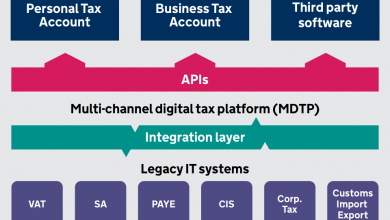Bhutan Anchors National Digital Identity on Ethereum: A Global First
Citizens manage their self-sovereign identities through a mobile wallet with biometric authentication. Ethereum enables verifiable credentials (VCs) and digital signing, using zero-knowledge proofs for privacy.
 On Oct 13 Bhutan announced a ground-breaking milestone: integrating its National Digital Identity system with the Ethereum blockchain, becoming the first country to anchor a live, population-scale identity system on a public blockchain network.
On Oct 13 Bhutan announced a ground-breaking milestone: integrating its National Digital Identity system with the Ethereum blockchain, becoming the first country to anchor a live, population-scale identity system on a public blockchain network.
This move shifts Bhutan from its previous Polygon-based setup to Ethereum, empowering nearly 800,000 citizens to securely verify their identities and access government services like healthcare, banking, and e-governance—without relying on centralized databases.
Key Details of the Announcement
- Timeline: The Ethereum integration is now fully operational, but the complete migration of all resident credentials is expected by Q1 2026. This follows Bhutan’s earlier pilots: Hyperledger Indy (initial launch in 2023), followed by Polygon in August 2024 for better scalability via zero-knowledge proofs.
- How It Works: Citizens manage their self-sovereign identities (SSI) through a mobile wallet with biometric authentication. Ethereum enables verifiable credentials (VCs) and digital signing, using zero-knowledge proofs for privacy—proving attributes like age or residency without revealing full personal data. This aligns with W3C standards and Bhutan’s National Digital Identity Act of 2023.
- Launch Ceremony: Held in Thimphu, the event featured Ethereum co-founder Vitalik Buterin, Ethereum Foundation President Aya Miyaguchi, Prime Minister Tshering Tobgay, and Crown Prince Jigme Namgyel Wangchuck (Bhutan’s first “digital citizen” in 2023). Miyaguchi called it “deeply inspiring,” emphasizing Ethereum’s role in fostering trust without central points of failure.
Why Ethereum? Security and Sovereignty
Bhutan’s GovTech Secretary Jigme Tenzing highlighted Ethereum’s “greater stability, transparency, and resilience” as key drivers. Unlike traditional systems vulnerable to hacks or single points of failure, Ethereum’s decentralized validator network makes it “virtually impervious to disruption.”
Buterin echoed this, noting that decentralized ID “empowers people by giving them more secure control over their data and their online lives.”
This fits Bhutan’s broader crypto strategy:
- Bitcoin Mining Pioneer: Powered by Himalayan hydropower, Bhutan holds over 11,000 BTC (valued at ~$1.3 billion), making it one of the world’s top state holders.
- Other Initiatives: Includes a Binance-partnered crypto tourism payment system (launched May 2025) and adding BTC, ETH, and BNB to strategic reserves in Gelephu Mindfulness City (January 2025).
Global Implications and Cautions
Bhutan joins a small club—Brazil and Vietnam have partial blockchain ID pilots—but leads in scale on a public chain. Proponents see it as a model for inclusive, fraud-resistant governance, potentially inspiring nations like India to decentralize systems such as Aadhaar.
However, experts like Chainalysis’ Philip Gradwell warn of privacy risks: “Once credentials live on-chain, they live forever,” potentially enabling surveillance if not carefully managed. Bhutan mitigates this with ZK-proofs, striking a “balance between verifiable and traceable.”
This Ethereum pivot underscores blockchain’s shift from speculation to sovereign infrastructure, positioning Bhutan as a “laboratory for digital sovereignty.” As Miyaguchi put it, it’s a “global step towards a more open and secure digital future.” For more, check Ethereum Foundation updates or Bhutan’s GovTech site.




